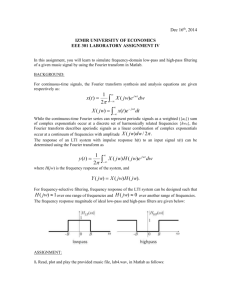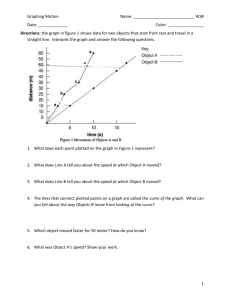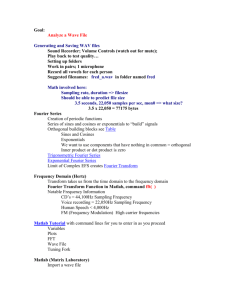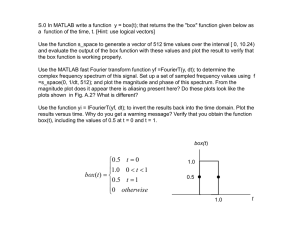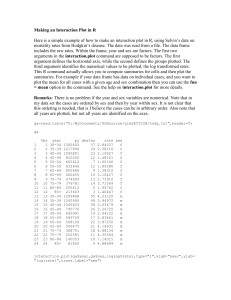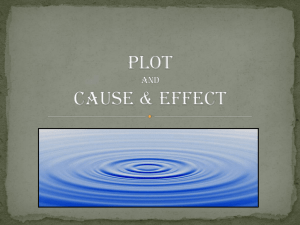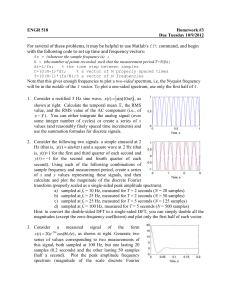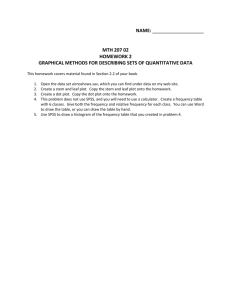Solution
advertisement
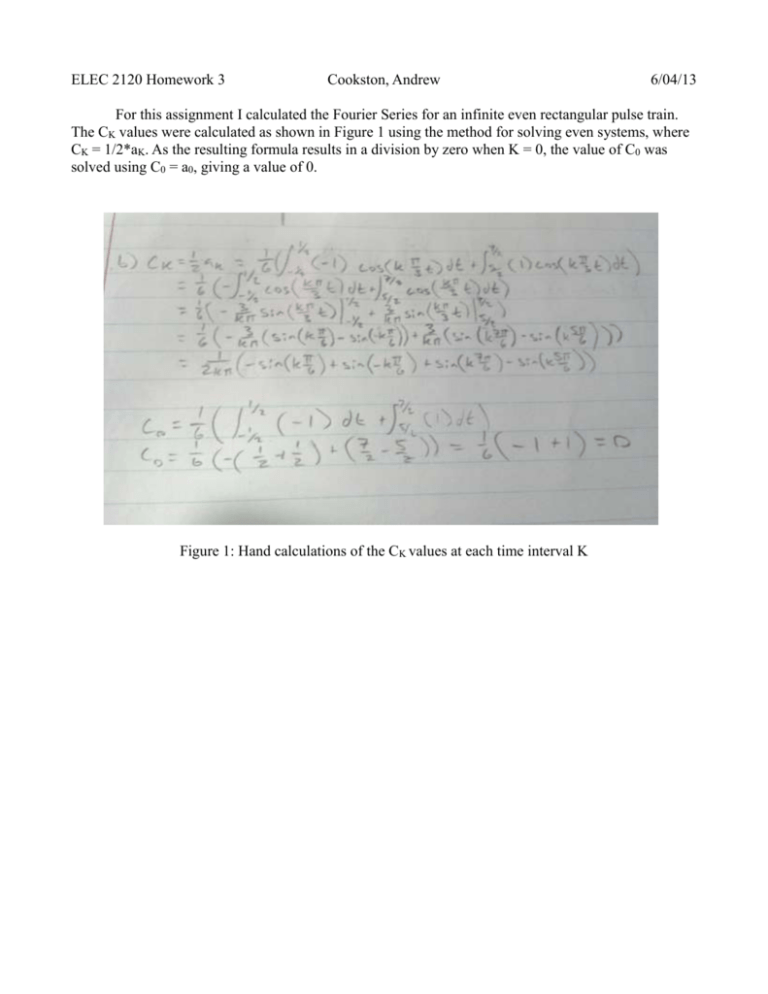
ELEC 2120 Homework 3 Cookston, Andrew 6/04/13 For this assignment I calculated the Fourier Series for an infinite even rectangular pulse train. The CK values were calculated as shown in Figure 1 using the method for solving even systems, where CK = 1/2*aK. As the resulting formula results in a division by zero when K = 0, the value of C0 was solved using C0 = a0, giving a value of 0. Figure 1: Hand calculations of the CK values at each time interval K ELEC 2120 Homework 3 Cookston, Andrew 6/04/13 The series was then plotted in Matlab using the code shown in Figure 2. The equation generated in Figure 1 is solved at each value of K from -10 to 10, then the value of C0, 0, is substituted in for K=0. A for loop inverts the phase angle of the negative K values, giving an odd phase line spectrum. The original system is calculated at 4001 points from -12 to 12 and plotted in Figure 3. The amplitude line spectrum and phase line spectrum are also plotted. Figure 2: Matlab code used to generate the plots shown in Figure 3 and the values in Table 1 ELEC 2120 Homework 3 Cookston, Andrew 6/04/13 The plots generated by the Matlab code in Figure 2 are shown in Figure 3. The plot of the original system is shown in the top plot, the stem plot of the amplitude of the Fourier series is shown in the second plot, and the stem plot of the phase of the Fourier series is shown in the last plot. The value of the magnitude and phase of this series at each time interval K is shown in Table 1. Figure 3: System plot, Amplitude Line Spectrum and Phase Line Spectrum of the system and its Fourier series ELEC 2120 Homework 3 Cookston, Andrew 6/04/13 Table 1: Value of amplitude and phase at each time interval K K -10 -9 -8 -7 -6 -5 -4 -3 -2 -1 0 1 2 3 4 5 6 7 8 9 10 CK ∠ CK -1.4136E-17 7.0736E-02 1.9878E-17 4.5473E-02 -4.7119E-17 -6.3662E-02 2.2087E-17 -2.1221E-01 -1.7670E-17 -3.1831E-01 0.0000E+00 -3.1831E-01 -1.7670E-17 -2.1221E-01 2.2087E-17 -6.3662E-02 -4.7119E-17 4.5473E-02 1.9878E-17 7.0736E-02 -1.4136E-17 -π 0 0 0 -π -π 0 -π -π -π 0 π π π 0 π π 0 0 0 π
